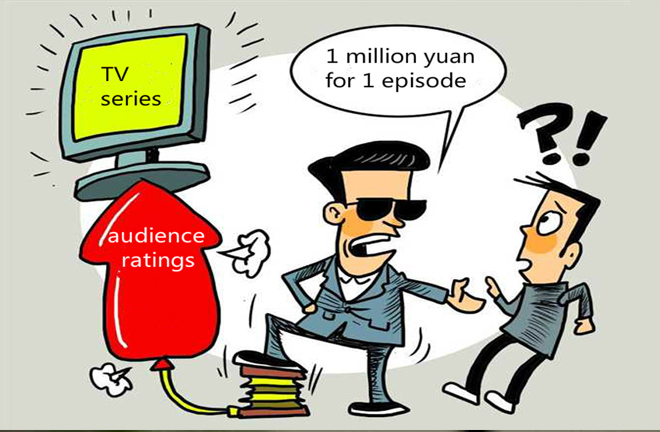Audience ratings should not be worshipped

Ratings fraud is a persistent and prevalent problem. Photo: FILE
In September 2018, Guo Jingyu, a director for TV, exposed the shady deals used to doctor audience ratings in a speech at Hubei University. A TV station required that he pay to raise the audience ratings for his work as a condition for broadcasting his show. He reported the case with his real name to the National Radio and Television Administration, a move which caused a large amount of activity. The merits and shortcomings of audience ratings were put under the spotlight.
Ratings fraud is a persistent problem, and governing it is difficult.
Such falsification stemmed from the worship of audience ratings. The audience ratings survey in China began in the mid-1980s. Audience ratings themselves were not a sin. Any work in any field involves the process of making itself “definable, quantifiable, operable, evaluable and traceable,” thus leading to the introduction of quantitative indicators. However, too much emphasis on ratings, like GDP worship, becomes a problem.
Stressing ratings and fabricating ratings are two aspects of the problem. As far as the evaluation system itself is concerned, it should be accurate. If it does not have credibility, what guiding role can it play?
Ratings fraud is generally considered a problem within the film and television industry with an impact limited to the industry. In fact, it is much more than that. Once the ratings survey comes out, it impacts the supply side too. The works that were made based on the falsified audience ratings thereby failed to represent mainstream values, some of them even running contrary to them. The film and television industry is a supplier of intelligent products. What consequences will such misled works eventually have?
Nowadays, “little fresh meat,” meaning handsome young males, appear frequently in TV series, but their acting is in fact not necessarily welcomed by mainstream audiences. The criticism of this phenomenon has been endless. In reality, some works that are consistent with mainstream values have become extremely popular and won audiences and profits. The creators of films and dramas are not ignorant, but they have no idea what kind of works viewers really like due to the masked ratings data. They thought the data was correct and created matching works. But it would turn out that they had made a big mistake and their works were nothing but the victims of ratings fraud.
The battle against ratings fraud has gone on for a long time with unsatisfactory results. Now, there is a solution. Recently, the authorities have made up their minds and come up with technical precautionary measures in the form of a new system. In addition, regulators need to better expose and punish malicious fraud.
(edited by MA YUHONG)
